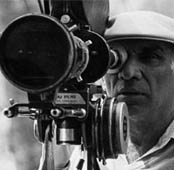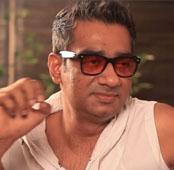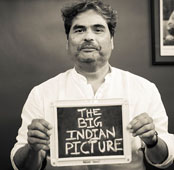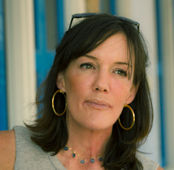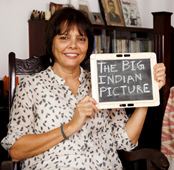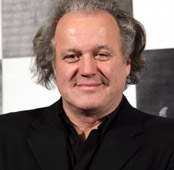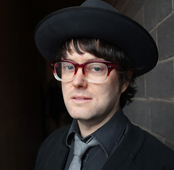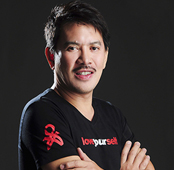-
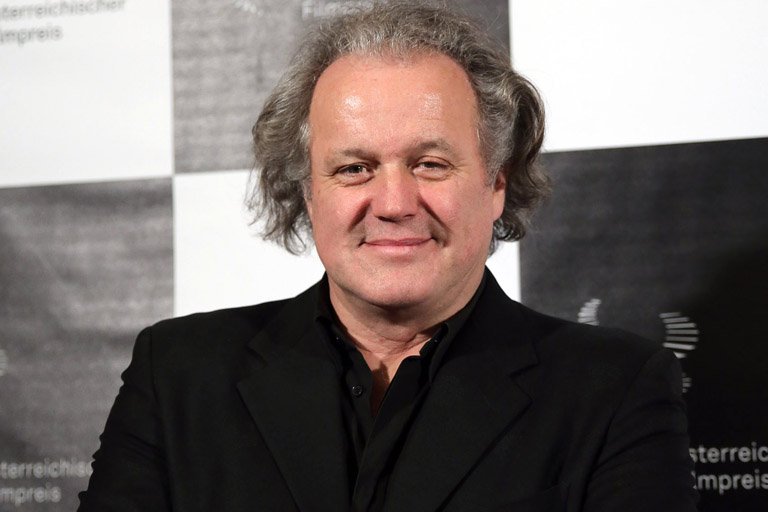 Julian Pölsler, Image : Manfred Werner (CC-BY-SA 3.0)
Julian Pölsler, Image : Manfred Werner (CC-BY-SA 3.0) -
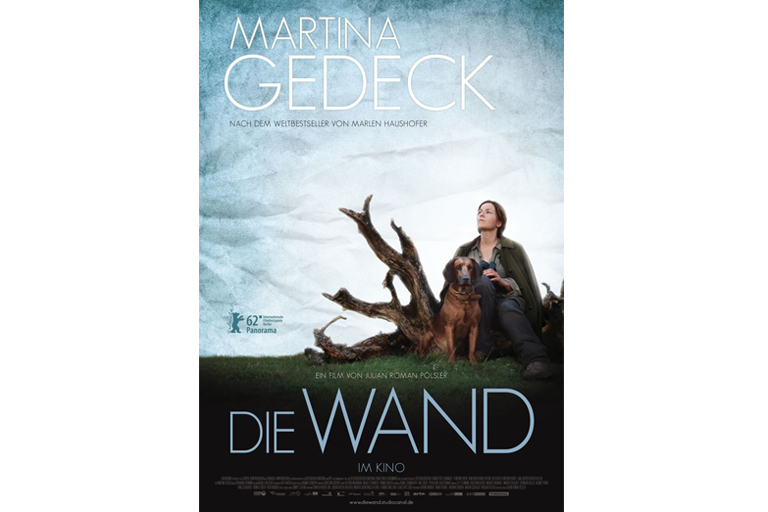 Poster of The Wall (Die Wand)
Poster of The Wall (Die Wand) -
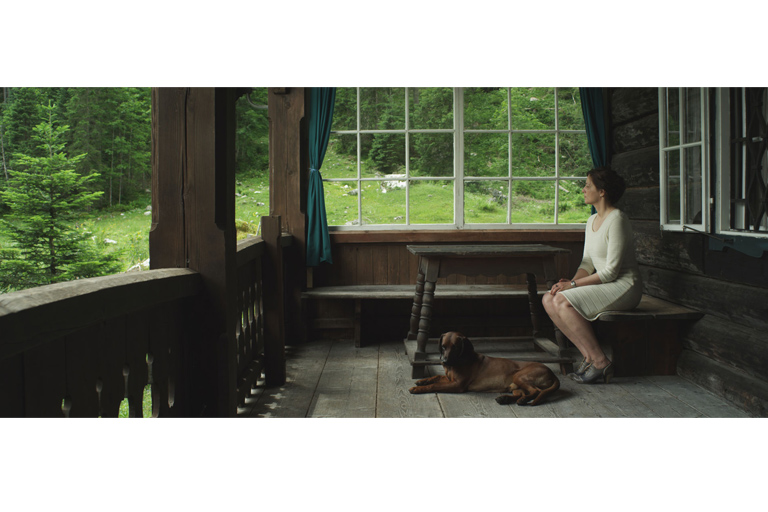 A still from The Wall
A still from The Wall -
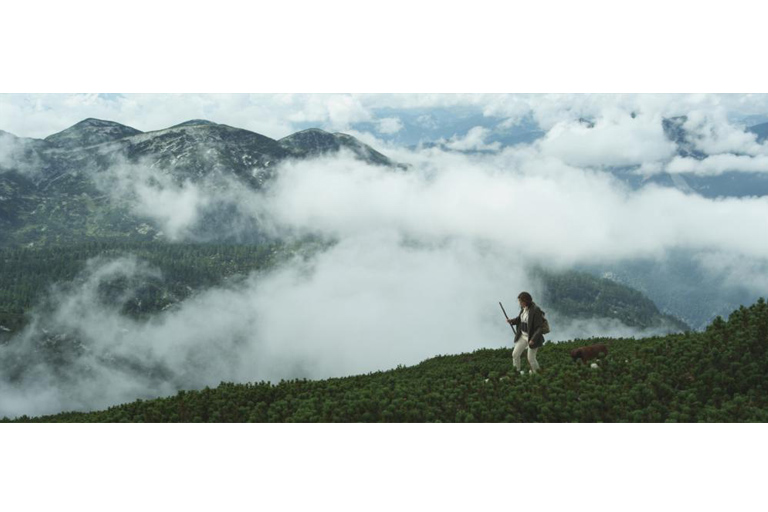 A still from The Wall
A still from The Wall -
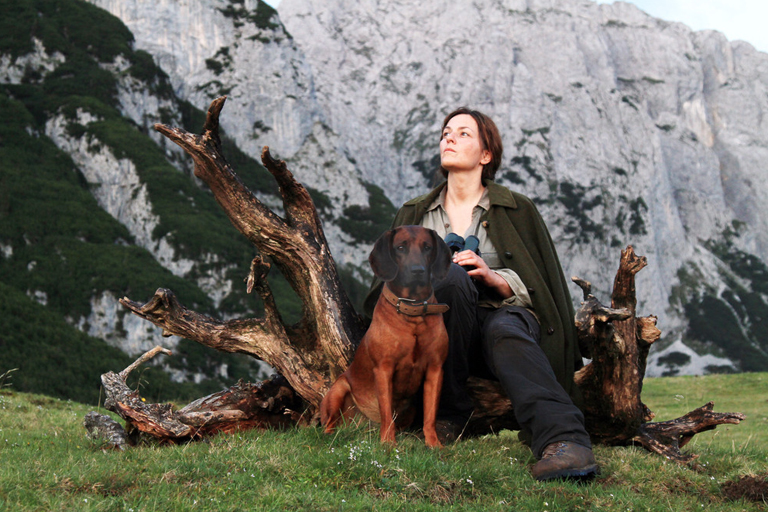 A still from The Wall (c) Mizerovsky/ Music Box Films
A still from The Wall (c) Mizerovsky/ Music Box Films
Voices from Afar is a series of interviews with filmmakers and film professionals, critics and experts from various countries around the world. The idea is to, through these voices, better our understanding of films and filmmaking communities which may seem alien at first glance, but whose joys and struggles, on closer examination, may have a deep resonance with our own.
Julian Pölsler, 59, is a towering presence. ‘Coming to Mumbai, it’s like coming to summer’ he says as we sit down to talk. Pölsler is an Austrian filmmaker who has written and directed several TV films and series. He directed his first feature film The Wall ( Die Wand), starring actress Martina Gedeck, in 2012. The film won the Prize of the Ecumenical Jury in the Panorama Section at the Berlin Film Festival 2012. It was also Austria’s entry to the Oscars 2014 for the Best Foreign Language Film.
Pölsler has worked as an Assistant Director with acclaimed Austrian director Axel Corti. He teaches at the Konservatorium of the City of Vienna, Multimedia Production at the Vienna University of Technology, and at the Institute for Computer Science & Media. In 2006, he began directing the opera.
He smiles gently and continues to talk about the weather but is shocked to hear Mumbai doesn’t have any winter to speak of. He describes the dark winters in Austria where the landscape is buried in snow for months.
Your film is based on the book The Wall by Marlen Haushofer. It’s not an easy book to film. Why did you decide to make this particular book into your first feature film?
Well, it took a long time to adapt the novel to the film. It took more than 25 years. In Germany and in Austria, this book is very well known. It’s a special book, especially for women, because it’s a feminine side to the world, to the problems of this world. It isn’t easy, it’s true. But when I read it—and I read it in one night—I knew that this is really a great, great novel to adapt to film. And everybody said it’s impossible to make a film; but I thought I love extraordinary films and themes. It may also be because I spent my childhood in the woods. Me and my family, we were high up in the mountains and very alone. But I was not alone only with animals, I had many others, I had my brothers and sisters and my father and grandma. We were a very, very happy, lucky family. But when I had problems I always went outside, to be surrounded by woods. And the same is in the film, The Wall, the woman has to survive and can only survive because she has the woods. And that was fascinating to me. I thought after I have finished the film I will find out why I was so enthusiastic about this novel. But now after I have finished the film, I still don’t know why.
The book is set in a specific period, but in the film you chose to not commit to a particular time. Why is that?
Yes. I think that the problems that Marlen Haushofer describes in the novel and the questions she’s asking are for all times. She wrote it in the sixties. But the questions are still valid in our times and will be, even in 20-30 years. Because they are questions about what concerns human beings. What are their hopes? What are their losses?
And it has worked around the world. The film was in Mexico (at the Monterrey International Film Festival 2012) and it won the Audience’s Award for Best International Feature Film. And I was very happy about it because it shows me that people everywhere in the world, we’re all one great family and we all have the same problems— in the really important sense, not which company’s mobiles I shall choose. But in terms of “What should I do? What does love mean to us? What does loneliness mean to us and how can we survive?”
Austrian cinema has been getting a lot of attention in the international scene but within the country American films dominate the market. Is that true?
Yes, it’s true. But my film, The Wall, was very successful in theatres. We had a lot of people coming in Germany as well. The problem is that Austrians always think a prophet doesn’t count in your own country.
You know we are a small country. When I came yesterday from the airport and the driver takes me to the hotel, I ask him how many inhabitants there are in Mumbai and he says 20 million. I said, “Oh god! We are all only 7 million in the whole country.” So these are other dimensions. Yes, but the people in Austria, they love American films. Maybe it takes time and we need patience to bring our own people into the cinema. I think it will happen.
Right now, what market does Austrian cinema have within the country?
Well, the people are proud of how important Austrian films are in the world but they prefer to go to American films because they are easier to consume. But you can’t forget that Austria has a high level of cultural activities. We have very, very, very high standards in theatre and opera and music. Our famous composers Mozart, Beethoven— they are in the minds of the people. Maybe one day, in hundred years, Michael Haneke and me, we will be the Mozarts of our day (laughs ). Who knows?
Austrian cinema that is successful within the country, at the box-office, consists mostly of comedies. What about the films being made in the other genres?
Well, the people also very much love the so-called Bollywood films— because there are colours and happy people and dancing and singing. And me too. When it is winter and the dark days are coming, I like Bollywood films because there is so much sun and so much light. It’s good. So maybe one day there will be time, right time for me to make comedy too. Is it only in Austria? Comedy is popular everywhere. People love to laugh. And it’s ok. It’s the reason why American cinema is so successful, because they give the audience what they want. The European films mainly show people what they don’t want to see but what is necessary.
When one thinks of European cinema, French and Italian films dominate our imagination. Has Austrian cinema managed to create its own identity?
That’s a good question. I admire French films very much. And, you know, Michael Haneke is a little in this tradition of French films. Well, he is half-Austrian, half-French. Maybe, Austrians are now creating new kind of films. There are many directors, many colleagues whose work makes me happy. There are many young directors coming from (Vienna) Film School and they are really great. And, they have their own style.
I was coming to that. It’s being called the New Austrian Film. Filmmakers coming from the Vienna Film Academy, working together, working on each other’s films— writing, directing and co-producing. Is that giving a predominant characteristic to the cinema from Austria? Is it creating a new language of cinema?
It’s one of the reasons. But it’s not the only reason. We are like a very close family and everybody knows each other. And that’s good. It’s good because Austria is a very small country and it is concentrated to Vienna and in Vienna is the famous film school. But there is a difference. There are some filmmakers coming from the cities and filmmakers coming from the country side and they are different. Maybe it’s the reason I’m writing comedy now because I am from the countryside. I hope Michael doesn’t hear it. Maybe he is working at the same time to write a comedy. I don’t know (laughs ).
Do all of you work closely together?
Well, we are close to each other but each one is working by himself in his own isolated area. And we just come together when there are award ceremonies. But it’s true, Michael Haneke was a very good guide to me, came into the editing room and talked to me about music, why he doesn’t want to use music in his films. He suggested to me that I also shouldn’t use any music in my film. But I said “No, no. I don’t want to make a Michael Haneke film. I want to make a Julian Pölsler film” (laughs ). He smiled and said that’s good.
Outside the country, Michael Haneke, cinematographer Christian Berger, actor Hans Landa— they have been recognised at the Oscars and internationally. But because they are associated with American or German production houses, they are not necessarily recognised as Austrian artists. Then there have been legends like Billy Wilder and Fritz Lang who had come from Austria, moved to work in other film industries and made their careers there. Do you see this as a problem?
There is a difference. Fritz Lang and Billy Wilder, they were forced to leave Austria because of the Nazi regime, this was another time. Now, many of our filmmakers are cooperating with other countries because Austria is very small. We have a very, very good film institute supporting us, buts it’s too small to survive on its own. You need a production partner. So for Michele Haneke, and for most Austrian filmmakers, it is Germany, because we have the same language and it’s easier to cooperate. I think that’s the reason. But it’s not like in the thirties and forties when Austrian filmmakers were forced to leave the country and it’s a shame on the political system that that happened.
So, the working of current filmmakers with production houses outside of Austria, like Germany and America— what does that do to the identity of the Austrian filmmaker? Does it make a difference somewhere?
No, if you see my film, you will see that it’s a typical Austrian film. The only thing that connects it to Germany is the language. It makes it easier to distribute it. But I can only speak for myself. If you know the difference between, Germany and Austria, you know it’s very important for us to have our own identity because the Germans are better football players (laughs ).
Within Austria there is funding for films from the Ministry of Education, Art and Culture, from the Austrian Film Institute and the local govt funds. How accessible are these funds to all kinds of filmmakers? And how much do they help?
Well, the Ministry and the Film Institute, it is very important for the so-called Austrian film phenomenon. There is really good funding coming from the Austrian Film Institute and that’s very important. There are different reasons why it is. One of them is the development of the film institute, film school; there is the (Vienna) Film Academy. There is also that there are great directors who are not so well-known like Axel Corti. He was a very famous filmmaker but not internationally famous like Michael Haneke is now. The Film Institute is very important. If there wasn’t this form of Institute, we wouldn’t have this wonder of Austrian filmmaking.
Can you tell us a little more about this wonder of Austrian filmmaking?
When I was coming to the film school, I got a book in the flea market and there was a list of great filmmaking nations and Austria was, I think, placed 149. And now it has changed and that’s because the politicians have recognised that is important to not only support the opera and theatre and music but also important to support films. And there are the filmmakers by themselves. And so I hope soon the audience will also be on our side.
Winter of Content
InterviewJanuary 2014
 By Meryl Mary Sebastian
By Meryl Mary Sebastian
Meryl Mary Sebastian is Junior Correspondent at The Big Indian Picture.



